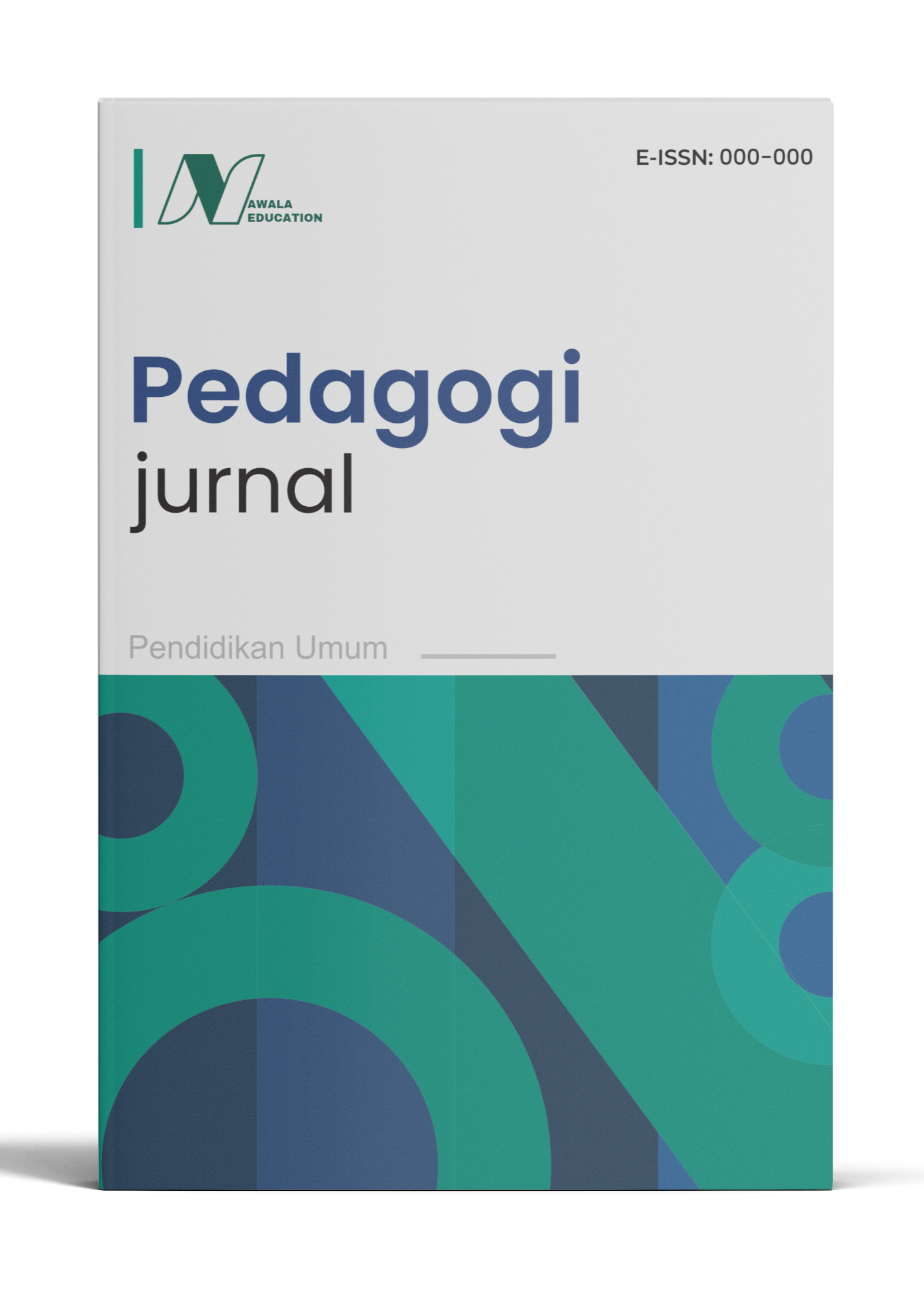Implementation Of The Concept Of Tafaqquh Fī Al Dīn In The Context Of Education At The Persatuan Islam Islamic Boarding School 27 Situaksan City Of Bandung
DOI:
https://doi.org/10.62872/r926ns35Keywords:
Islamic Education, Islamic Association Islamic Boarding School, Tafaqquh Fī al DīnAbstract
The concept of Tafaqquh Fī al-Dīn holds significant importance in Islamic education, emphasizing a deep understanding of religion that is applicable to everyday life. Islamic boarding schools pesantren play a crucial role in applying this concept, yet face major challenges in balancing tradition with modern demands. This study investigates the implementation of Tafaqquh Fī al-Dīn at Pesantren Persatuan Islam 27 Situaksan, Bandung, focusing on the understanding of the asatidz (teachers), its application within the school, student responses, challenges encountered, and its impact on the formation of Islamic character and knowledge. Previous research (Hefner, 2009; Steenbrink, 1986) highlights the dilemma faced by pesantren in maintaining tradition while embracing modern innovations. Using a descriptive qualitative approach, with interviews, observation, and document analysis, this study reveals that while the asatidz understand Tafaqquh Fī al-Dīn, its implementation is hindered by institutional factors, limited infrastructure, and lack of skilled human resources, aligning with Ahmad’s (2017) findings on educational modernization. Although students respond positively, time and physical limitations pose challenges. To sustain relevance in the modern era, further innovations are necessary, as proposed by Azra (2015) in his study on the transformation of Islamic education in Indonesia.
Downloads
References
Abdul, A. (2019). Integration of Entrepreneurship in Religious Education at Al-Hidayah Islamic Boarding School. Journal of Islamic Education, 15(1), 25-40.
Abdullah, S. (2019). The Role of Islamic Boarding Schools in Character Education. Journal of Islamic Studies.
Adian Husaini, A. (2016). Islamic Education Oriented to Tafaqquh Fī al Dīn. Journal of Islamic Education.
Ahmad, M. (2017). The Role of Islamic Boarding Schools in Indonesian Education Reform. Dissertation, University of Malaya.
Al-Attas, M. (2020). Education and Character Building in Islamic Institutions. Jeddah: Islamic World Educational Center.
Anwar, M. (2021). Integrating Technology in Islamic Education: A Case Study. Journal of Modern Islamic Education.
Asad, M. (2019). Tafaqquh Fī al Dīn: A Study of Islamic Jurisprudence. Journal of Islamic Studies.
Azra, A. (2015). Transformation of Islamic Education in Indonesia: Context and Dynamics. Journal of Indonesian Islam.
Azra, A. (2017). The Transformation of Islamic Education in Indonesia. Journal of Indonesian Islam, 11(1).
Braun, V., & Clarke, V. (2016). Using Thematic Analysis in Psychology. Qualitative Research in Psychology.
Creswell, J. W. (2018). Qualitative Inquiry and Research Design: Choosing Among Five Approaches. Sage Publications.
Denzin, N. K., & Lincoln, Y. S. (2018). The SAGE Handbook of Qualitative Research. Sage Publications.
Djamaluddin, A. (2020). Leadership Challenges in Indonesian Islamic Boarding Schools. Dissertation, Indonesian Islamic University.
El-Zein, A. (2021). Tafaqquh Fī al Dīn: Understanding Religion in a Globalized World. Journal of Contemporary Islamic Thought.
Feener, M. R. (2019). Islamic Education and the Challenge of Modernity. The Oxford Handbook of Islamic Education.
Ghazali, M. (2017). Modern Islamic Education. Kuala Lumpur: Islamic Publication.
Ghazali, M. (2019). Learning Tafaqquh Fī al Dīn in the Islamic Boarding School Context. Journal of Islamic Education.
Hamid, S. (2020). Tafaqquh Fī al Dīn in Turkish Islamic Schools. Istanbul: Turkish Islamic Foundation.
Hashim, A. (2019). Da'wah and Service Learning in Islamic Boarding Schools. Banda Aceh: Syiah Kuala University Hefner, R. W. (2009). Making Modern Muslims: The Politics of Islamic Education in Southeast Asia. Princeton University Press.
Johansen, B. (2018). Teaching Islam in Modern Educational Contexts. International Journal of Islamic Pedagogy.
Kadi, M. (2018). Resistance to Change in Traditional Islamic Schools. Malang: UIN Malang Press.
Kamali, M. H. (2017). Educational Reforms in Islamic Institutions. Islamabad: IIIT.
Kamali, M. H. (2017). Principles of Islamic Jurisprudence. Oxford University Press.
Kamilah, S. (2018). Interactive Learning Methods in Islamic Education: Analysis of Student Engagement in Islamic Boarding Schools. Journal of Education and Culture, 10(2), 115-130.
Merriam, S. B. (2019). Qualitative Research: A Guide to Design and Implementation. John Wiley & Sons.
Miles, M. B., Huberman, A. M., & Saldaña, J. (2014). Qualitative Data Analysis: A Methods Sourcebook. Sage Publications.
Nawawi, A. (2018). Islamic Pedagogy: Between Tradition and Modernity. Jakarta: PT Pustaka Islam.
Nawawi, I. (2018). Tafaqquh in Modern Times: Challenges and Opportunities. Journal of Islamic Studies.
Patton, M. Q. (2015). Qualitative Research & Evaluation Methods. Sage Publications.
Rahman, A. (2019). The Role of Tafaqquh Fī al Dīn in Character Building. Yogyakarta: Indonesian Islamic University.
Rosenthal, F. (2017). Islamic Knowledge in Modern Times. London: Routledge.
Rosenthal, F. (2017). The Impact of Tafaqquh on Muslim Societies. Journal of Islamic Civilization.
Saeed, A. (2020). Islamic Education and Character Building: A Study in Malaysia. Journal of Islamic Education.
Saeed, A. (2020). Tafaqquh Fī al Dīn: Modern Challenges. Kuala Lumpur: Islamic Education Research Institute.
Saleh, A. (2020). Character Education in Islamic Boarding Schools. Jakarta: PT Al-Huda.
Saleh, A. (2020). The Role of Ulema in Modern Islamic Education. Journal of Islamic Studies.
Salim, A. (2019). Islamic Boarding School System: A Case Study from Yemen. Dubai: Gulf Research Centre.
Salim, M. (2019). Tafaqquh Fī al Dīn and Its Role in Building Muslim Identity. Journal of Islamic Thought.
Happy, H. (2020). The Role of Sharia Financial Institutions in Developing the Economic Independence of Santri in Islamic Boarding Schools. International Journal of Islamic Economics, 8(3), 201-215.
Stake, R. E. (2013). The Art of Case Study Research. Sage Publications.
Steenbrink, K. A. (1986). Pesantren, Madrasah, School: Islamic Education in the Modern Era. LP3ES.
Yasin, M. (2020). Community Collaboration in Religious Learning in Pesantren: Challenges and Opportunities. Journal of Education and Learning, 18(1), 97-112
Yin, R. K. (2017). Case Study Research and Applications: Design and Methods. Sage Publications
Zarkasyi, H. (2016). Between Tradition and Modernity: The Dynamics of Islamic Education in Indonesia. Studia Islamika
Downloads
Additional Files
Published
Issue
Section
License
Copyright (c) 2024 Acep Saefuddin, Didin Nurul Rosidin, Adang Djumhur (Author)

This work is licensed under a Creative Commons Attribution-ShareAlike 4.0 International License.











